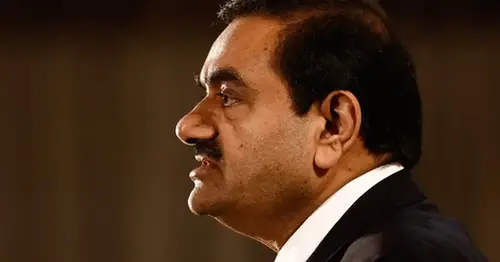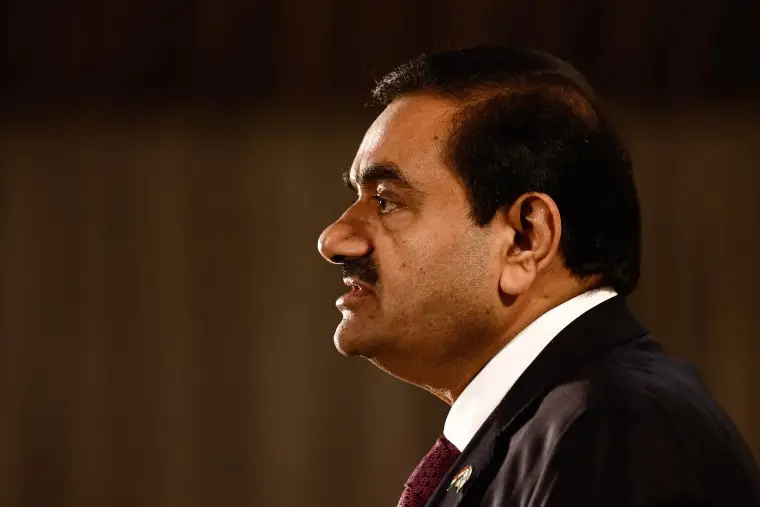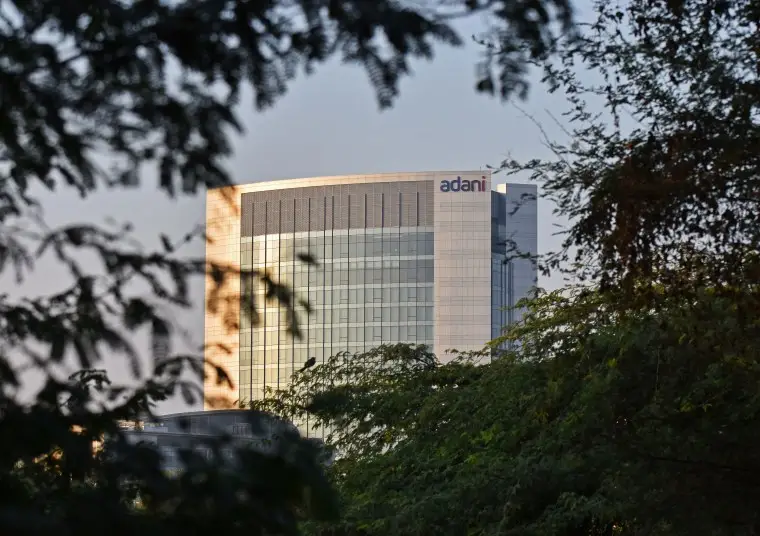
What's happening with Adani Group? Hindenburg's fraud claims explained
Gautam Adani rose from college dropout to become Asia’s richest man — but now he's seen his empire rocked by a week of turmoil.
The Indian tycoon has lost his title, and tens of billions in personal wealth, in a matter of days after a U.S.-based short-selling firm accused him of “the largest con in corporate history.”
Adani dismissed the allegations and accused the short-seller, Hindenburg, of a “calculated attack” on his country.
But the claims have triggered a meltdown for his company and sent shockwaves through the markets.
On Thursday, Adani abandoned his flagship company's planned stock offering as his conglomerate's losses topped $100 billion, deepening concerns about a potential broader impact on India's economy.
Here’s what to know.
What are the accusations?
Hindenburg Research published a report on Jan. 24 saying the Adani Group, one of India’s biggest conglomerates, had “engaged in a brazen stock manipulation and accounting fraud scheme over the course of decades.”
The report was published days before the planned $2.5 billion share sale by Adani Enterprises, the conglomerate’s flagship company.
In addition to accounting fraud, Hindenburg also accused the Adani Group of being involved in billions of dollars’ worth of “suspicious dealings with its chairman’s brother, Vinod Adani, and his labyrinth of offshore shell entities,” which it says the company used for stock manipulation.
Hindenburg has a track record of exposing alleged corporate wrongdoing while placing bets against these companies, a process also known as short selling. Hindenburg disclosed that it held short positions in Adani’s companies through assets traded in the United States and non-Indian-traded derivative instruments, which experts said positioned it to benefit from a drop in share prices.
The report, which Hindenburg said was based on interviews with former executives and research from thousands of documents, raised concerns about high debt and the activities of top executives and concluded that seven of Adani’s companies were overvalued.

What has Adani said?
Adani's business hit back at Hindenburg, threatening legal action and accusing it of sabotaging the share sale.
“The volatility in Indian stock markets created by the report is of great concern and has led to unwanted anguish for Indian citizens,” the conglomerate said in a statement last week.
In another 413-page response a few days later, Adani dismissed Hindenburg’s accusations as baseless, calling the short-seller the “Madoffs of Manhattan.”
“This is not merely an unwarranted attack on any specific company but a calculated attack on India, the independence, integrity and quality of Indian institutions, and the growth story and ambition of India,” Adani’s statement said.
Hindenburg replied that only about 30 of those pages addressed issues raised in its report, and that Adani had not answered 62 of its 88 questions.
“India’s future is being held back by the Adani Group, which has draped itself in the Indian flag while systematically looting the nation,” the research group said. “We also believe that fraud is fraud, even when it’s perpetrated by one of the wealthiest individuals in the world.”
Hindenburg Research and the Adani Group did not respond to a request for additional comment.
How bad has the damage been?
Though Adani denied the allegations, the report resulted in a mass selloff of shares in the Adani Group’s listed companies, which according to Bloomberg have lost $107 billion in value.
Adani himself has lost $48.5 billion of his $120 billion fortune, according to the Bloomberg Billionaires Index, where he has fallen from third on the list to 13th. He has also slipped one spot below his rival and fellow Indian tycoon Mukesh Ambani, the chairman of Reliance Industries.
The record domestic share sale had been seen as a measure of market confidence in Adani after the report, and it initially had enough investor support to proceed on Tuesday. But the conglomerate called it off late Wednesday, citing “market volatility.”
“This decision will not have any impact on our existing operations as well as our future plans,” Adani said in a recorded video address aiming to calm investors that was released Thursday, his first public comments since the crisis began.
Adani said the decision to scrap the share offering was made “to insulate the investors from potential losses.”
“For me, the interest of my investors is paramount and everything else is secondary,” he said.
“We will continue to focus on timely executions and delivery of projects,” he said.
But the damage may have been done. Since Hindenburg's report was released on Jan. 24, Adani Group companies have lost nearly half their combined market value.
“Unless Adani is able to regain the confidence of institutional investors, stocks will be in freefall,” Avinash Gorakshakar, head of research at Mumbai-based Profitmart Securities, told Reuters.

Who is Gautam Adani?
Adani, 60, is from the western Indian state of Gujarat and built his empire from the ground up.
After dropping out of college, he became a diamond trader in Mumbai, the country’s financial capital, before going into commodities trading with his newly established Adani Enterprises in the 1990s.
Today, Adani is a household name in India and his empire spans almost every public sector — a fact that has meant Adani’s plummeting stocks have raised concerns about the potential for a wider impact on India’s financial system.
While the country isn’t solely reliant on the giant, “they are playing, like many others, a very important role in India’s infrastructure growth and infrastructure deployment,” Arvind Gupta, co-founder of the Digital India Foundation, a nonprofit think tank, told NBC News.
Adani's companies build ports, generate electricity, mine coal, run airports and manufacture defense equipment, among other things. Adani has also pledged to invest up to $70 billion in green energy projects.
As his companies’ share prices surged in recent years, Adani’s net worth has gone up about 2,000%.
Adani denies accusations that he has benefited from his close ties with Prime Minister Narendra Modi, who is also from Gujarat and has been known to use an Adani corporate jet for campaigning.
Late last year, Adani acquired a majority stake in NDTV, one of India’s last major independent television broadcasters and one that was critical of Modi. Several prominent journalists quit in the wake of the takeover.






